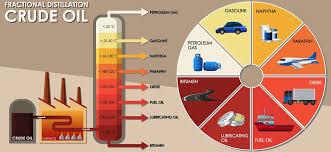
This course offers an in-depth exploration of essential industrial substances, including lubricating oil, wax, asphalt, coke, and sulfonic acids. It covers the composition, manufacturing processes, and the practical applications of these materials in various industries. Through a detailed breakdown of refining techniques, students will gain valuable insights into the chemical processes that enhance the quality and performance of these products.
Key Topics:
Lubricating Oil:
- Composition: Understand the base oils and additives that make up lubricating oils and their specific roles.
- Manufacturing: Study the production of lubricating oil, from crude oil refining to finished products.
- Chemical Refining Processes: Explore methods like hydro-processing, solvent refining, and catalytic dewaxing, essential for improving the purity and performance of lubricating oils.
- Dewaxing Processes: Learn the differences between solvent and catalytic dewaxing and how they enhance oil fluidity at low temperatures.
- Finishing Processes: Examine how lubricating oils are polished for market use.
- Properties and Uses: Discover the physical and chemical properties that make lubricating oil essential in automotive, industrial, and mechanical applications.
Wax:
- Composition: Delve into the chemical makeup of wax, including its natural and synthetic variants.
- Manufacturing: Learn about the extraction and processing methods used to produce different types of wax.
- Properties and Uses: Understand the various forms of wax, from paraffin to beeswax, and their roles in industries such as cosmetics, pharmaceuticals, and packaging.
Asphalt:
- Composition: Study the hydrocarbons that form asphalt and how its composition affects its utility.
- Manufacture: Explore the refining processes involved in producing asphalt from crude oil.
- Properties and Uses: Analyze the characteristics that make asphalt a key material in road construction, roofing, and waterproofing.
Coke:
- Composition: Learn the chemical structure of sulfonic acids and their functional groups.
- Manufacture: Study the methods used to produce sulfonic acids, including sulfonation processes.
- Properties and Uses: Discover how sulfonic acids are employed as surfactants, detergents, and catalysts in various chemical reactions.
Learning Outcomes:
- Gain a comprehensive understanding of the composition and manufacturing processes of lubricating oils, waxes, asphalt, coke, and sulfonic acids.
- Develop the ability to identify the chemical refining techniques used to enhance these substances for industrial use.
- Understand the practical applications and properties that make these materials vital to industries ranging from automotive to construction and beyond.
- Teacher: John Vershima Anyam
